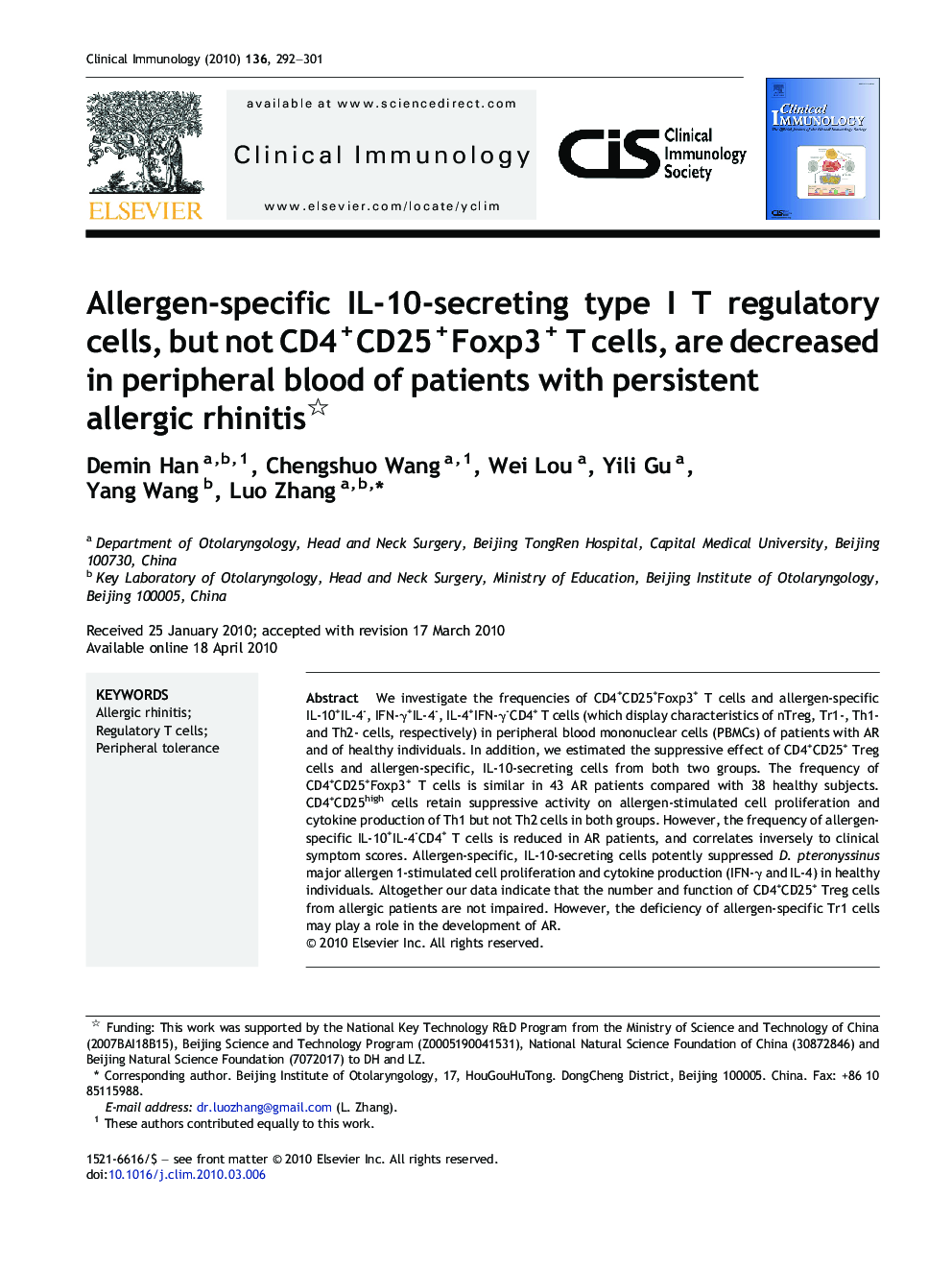| Article ID | Journal | Published Year | Pages | File Type |
|---|---|---|---|---|
| 3257509 | Clinical Immunology | 2010 | 10 Pages |
We investigate the frequencies of CD4+CD25+Foxp3+ T cells and allergen-specific IL-10+IL-4-, IFN-γ+IL-4-, IL-4+IFN-γ-CD4+ T cells (which display characteristics of nTreg, Tr1-, Th1- and Th2- cells, respectively) in peripheral blood mononuclear cells (PBMCs) of patients with AR and of healthy individuals. In addition, we estimated the suppressive effect of CD4+CD25+ Treg cells and allergen-specific, IL-10-secreting cells from both two groups. The frequency of CD4+CD25+Foxp3+ T cells is similar in 43 AR patients compared with 38 healthy subjects. CD4+CD25high cells retain suppressive activity on allergen-stimulated cell proliferation and cytokine production of Th1 but not Th2 cells in both groups. However, the frequency of allergen-specific IL-10+IL-4-CD4+ T cells is reduced in AR patients, and correlates inversely to clinical symptom scores. Allergen-specific, IL-10-secreting cells potently suppressed D. pteronyssinus major allergen 1-stimulated cell proliferation and cytokine production (IFN-γ and IL-4) in healthy individuals. Altogether our data indicate that the number and function of CD4+CD25+ Treg cells from allergic patients are not impaired. However, the deficiency of allergen-specific Tr1 cells may play a role in the development of AR.
